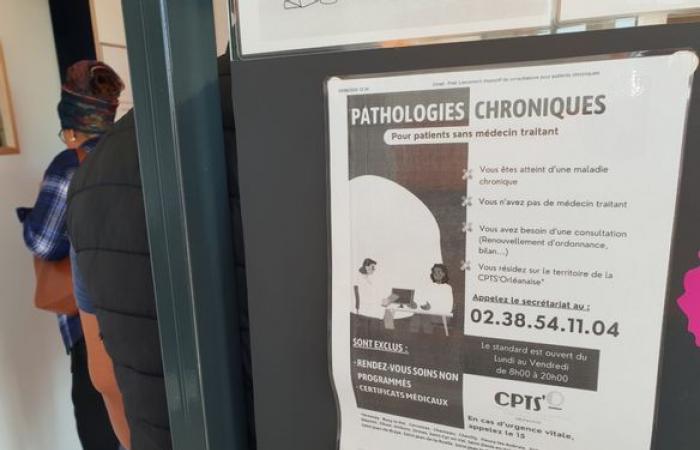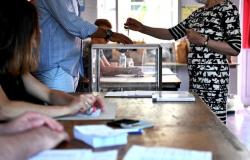
A new telephone number is reserved for the most fragile patients, needing prescription renewal, sick leave, follow-up, etc. This is unprecedented in the Loiret.
Until now, they did not fit into any box. Or rather in no queue. People with long-term illnesses (ALD) and chronically ill people who did not have a treating doctor found themselves, even more than the rest of the population, in a very delicate situation. They did not have a practitioner to contact and did not meet the criteria for unscheduled care, for which numerous visiting slots have been created for months, in the Loiret. The Primary Health Insurance Fund (CPAM) estimates that there are more than 9,000 in this case in the department.
However, these patients are among the priorities. It is precisely they who need to see a doctor regularly. To respond to this lack and the pressing demand from the supervisory authorities, the Ccommunauté territoriale de santé (CPTS) of Orléans is showing itself to be a pioneer in the Loiret.
Longer and better paid slots
It has set up a dedicated telephone number (02.38.54.11.04), open Monday to Friday, from 8 a.m. to 8 p.m. A medical secretary will try to find you an appointment with a private doctor in the area. “Doctors release consultations which are reserved for chronic pathologies. The number is aimed at patients in ALD, 100% covered (cancers, disabling stroke, bipolar disorders, chronic depression, type 1 and 2 diabetes, epilepsy, HIV, Parkinson’s disease, etc.) and chronically ill patients (hypertensives, for example) who request work leave or a prescription renewal…” explains Dr Corinne Letouzé, general practitioner in the metropolis.
Difficult access to care: a connected ophthalmological case to examine seniors in Loiret
The specificity of these slots, unlike unscheduled care, is that they are longer because the clinical pictures and personal situations are often complex. Especially when you don’t know the patient: “We can take two patients per hour at most,” she warns.
Problem: these long consultations are paid at the same rate as the others, three times shorter. “The CPTS’O pays compensation to doctors who open these slots and hopes that the State will bounce back and take over.”
Receive the free newsletter ‘La Rep’ takes care of you’ every Thursday to find out everything about health in the Loiret.
“We will not be able to make an appointment
to everyone, right away”
But be careful, if demand is high, the supply will not be able to satisfy all the waiting patients: “We have increased, we have gone from 14 to 20 slots per week. But we will not be able to give appointments to everyone the world, right away. Especially since this summer, doctors will be taking leave. We must preserve the system,” warns Dr. Letouzé.
“We knew that we were not going to be unemployed”: what is the assessment after a month of opening the Olivet unscheduled care center?
Once this first consultation has been carried out, what is next? “If the doctor judges that he can, he can become his attending physician. But there is no obligation, knowing that most already have a patient base of 2,500 people. If he refuses, the patient will see another doctor the next time but the latter will have access to the patient’s shared file via our software. He will thus know his history and this will allow better monitoring. This device has actually been tested since the fall, in complete discretion. But it has been gaining momentum in recent days: displays have started since June 6 at pharmacists and in medical practices.
What the CPAM also puts in place
In the spring of 2023, the government had ordered the CPAMs in each department to tackle this problem head on and find solutions for these vulnerable and therefore priority patients. Massive actions were then undertaken. The people concerned were contacted. Out of all of them, only ten people did not want us to find them a doctor.
9,165 long-term patients without a treating doctor in the Loiret: the painstaking work of the CPAM to provide them
For the vast majority, the task is arduous and carried out in conjunction with the various CPTS. A quarter of these patients see a doctor three or four times a year, without having declared them as their attending physician. Which they were invited to do, if the practitioner was willing. Because nothing can be imposed in this area. The problem of renunciation of care exists: 200 people had not had follow-up for two years. Over the past year, the rate of these patients without a GP has increased from 9 to 7.1%. A long-term job.
Marie Guibal





